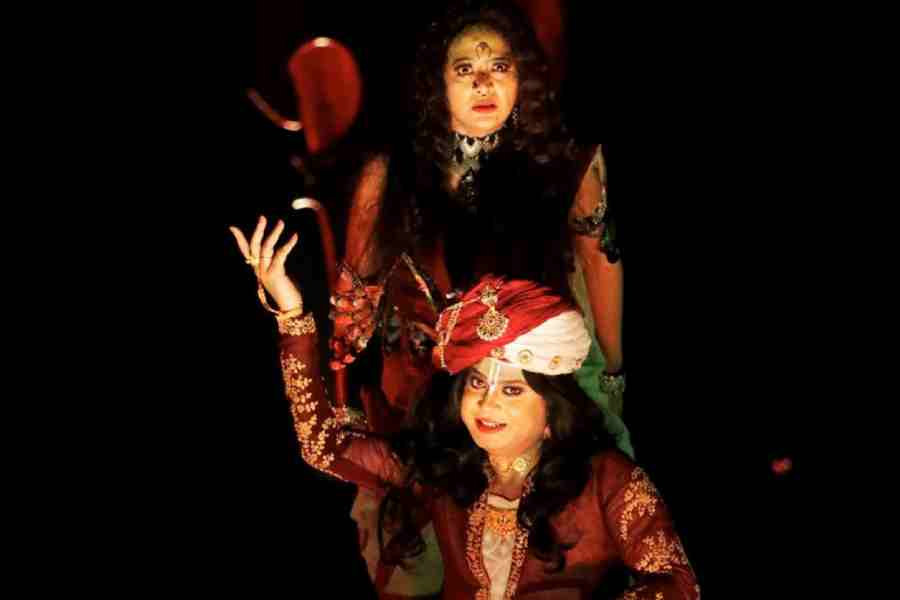Chanditala Prompter has produced Iravan Gatha with the guest director, Rakesh Ghosh, at the helm of affairs and befittingly so, given the fact that he is the playwright. For Iravan Gatha, Ghosh chooses to pick out from the Mahabharata, a veritable ocean of tales, the brief but poignant account of Iravan. In fact, the version of the Iravan narrative used by the playwright is found in the folk traditions stemming from the Tamil Mahabharata. Quite clearly, Ghosh prefers to work with this particular variant of the Iravan myth because it allows him to use key features of the ancient narrative to underscore contemporary concerns. Iravan, the son of Arjun and Ulupi (the Naga princess who is half-maiden and half-serpent), is ritually sacrificed to ensure a win for the Pandavas. However, Iravan offers himself up to be sacrificed on the condition that his marriage is arranged before his death. With no woman willing to walk into a conjugality that is doomed to bring about immediate widowhood, Krishna assumes his female form, Mohini, marries Iravan and spends a night with him before the day of the latter’s death dawns. Ghosh astutely exploits Iravan’s marginality (a tribal virtually unacknowledged by his father), the manipulative strategy devised by the Pandava elders to secure Iravan’s ‘sacrifice’ and Krishna’s gender fluidity to comment incisively upon contemporary socio-political debates. Iravan Gatha gains considerable strength as a dramatic text from the fact that the linking of the past and the present is not sporadic or cursory, but a firmly embedded trope that runs throughout the length of the narrative.
In terms of the performance, the play, to put it bluntly, disappoints. Too many actors who take the stage are too unprepared and raw to be able to do justice to their roles. The usually dependable Ranjan Bose (Krishna/Mohini) is rather lacklustre. Kalpana Baruah as Ulupi tries her utmost best to pull the play out of the doldrums but, sadly, receives scant support from her co-actors.










